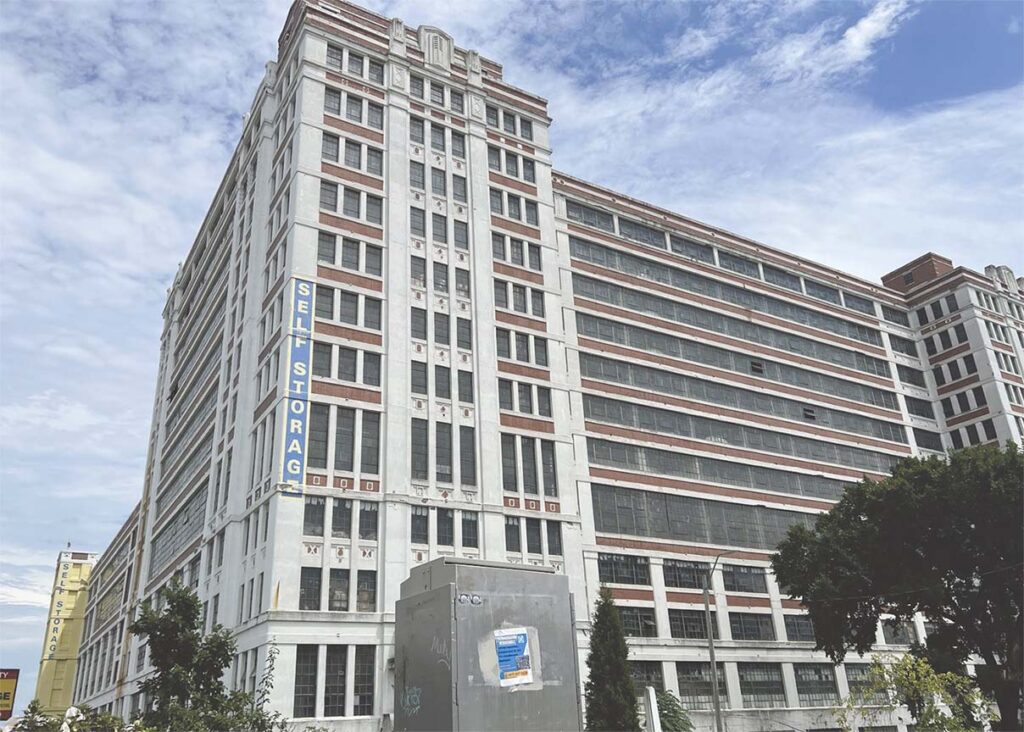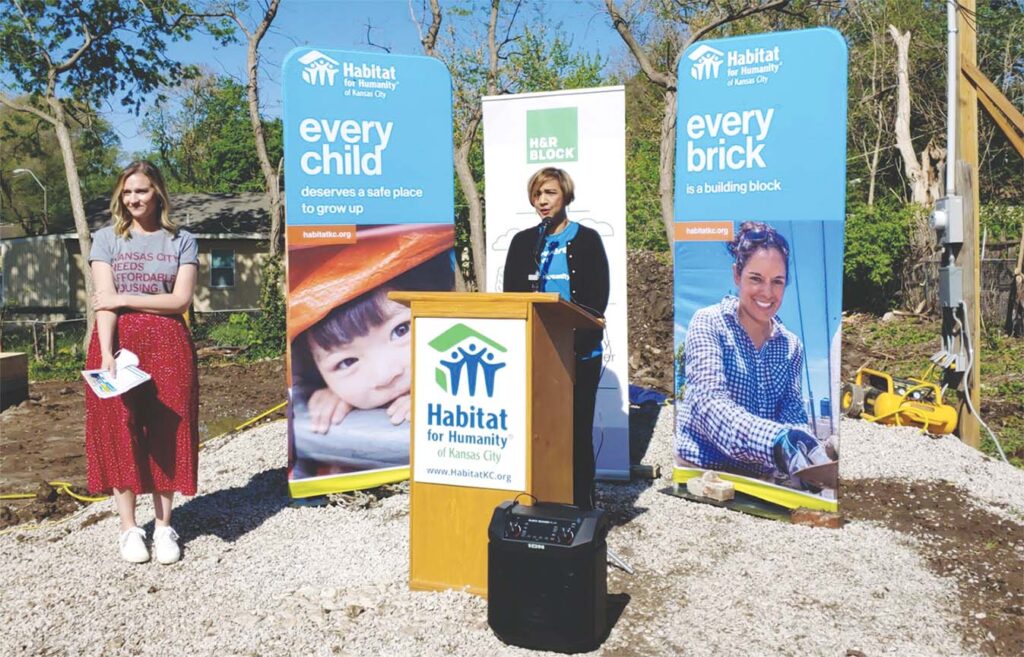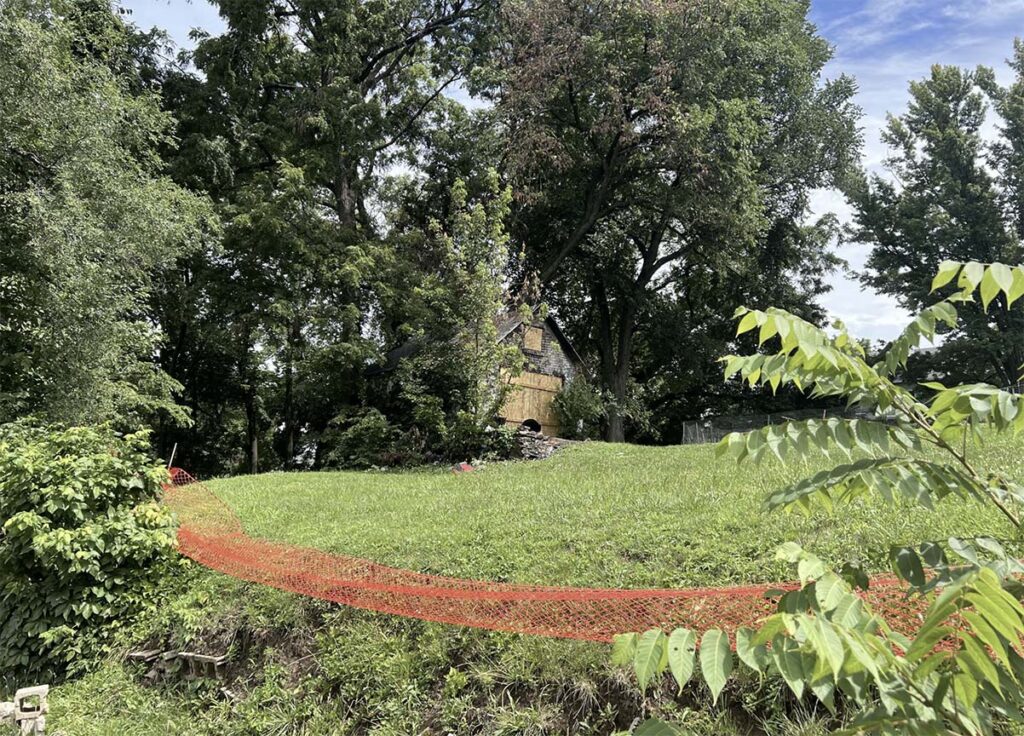
Julia Williams
Editor-in-Chief
Home. A difficult concept to obtain for many — particularly within Kansas City limits. As Mortgage and rent payments climb, the number of accessible, secure and desirable residences plummet, which leaves individuals and families alike with less than ideal living conditions.
While this disproportionate rent-cost to annual income is an epidemic impacting individuals and families nation-wide, it remains a continual obstacle within Kansas City and the Northeast community, respectively.
The Amazing Race
In efforts to combat this emergency, two local organizations are working to improve living conditions within Lykins Neighborhood and along an intersection of Independence and Hardesty Avenues.
Lykins Neighborhood Association has partnered with Habitat for Humanity to develop eight, single-family homes on two lots — formerly the location of Lykins Elementary — which overlook Lykins Square Park.

Additionally, Jonathan Arnold, along with his team — Arnold Development Group — has acquired what will soon be known as Historic Northeast Lofts. While possessing various prior usages — including self-storage and its first operation as a 1919 high-end fashion company’s shipping warehouse — Arnold plans to revamp this space into a multi-phase, solar-energy powered, affordable housing complex and community.
A Beautiful Day in the Neighborhood
Beginning with Lykins, an abundance of vacant lots present continuous complications for neighborhood residents and respective homeowner associations. These two lots — located just north of Lykins Square Park — require an immediate restructure.
Just below these lots occupies soccer fields, which see recreational youth utilization — including children of immigrant families.
“They need a safe space to practice — it is currently a major safety concern,” said Ricardo Flores, resource center programming director for Lykins Neighborhood Association. “More housing will bring safety to this area.”
Excessive amounts of empty lots can attract encampments toward for the houseless demographic. As Lykins begins to see an increase in this variety, it requires a dire need for additional housing units, Flores said in an interview. He said Lykins has additional vacant lots beyond the approved two, and the neighborhood wants them to become developed.
Prior to selecting Habitat for Humanity, Flores said he — along with the Lykins Board — put together a community outreach, which included canvassing surveys, for the community to voice its concerns and provide feedback for lot construction.
“We want something to be built they (the community) actually want to see,” Flores said.
After creating a request for proposal (RFP) these properties were re awarded to Habitat for Humanity, who has previously completed construction within Lykins Neighborhood. While this has included roof repairs and home improvements, Flores said this is the first time new housing has been built within this neighborhood in decades.
“They are a great organization to partner with,” Flores said. “They are always doing great work.”
Originally, Habitat for Humanity’s lot presentation included townhomes, however, after consideration, the non-profit organization felt single-family homes would provide greater benefits, said Michael Fisher, Habitat for Humanity construction director.
Fisher said these eight, single-family homes wilwl provide accessibility, with compact and narrow structured appearances to fit Lykins traditional landscape.
With a range of single-story, three-bed (1100 square feet) to six-bed homes, this organization plans to build two of each structure — including five-bed, three-bath, four-bed and two-bed options.
To gain possession of said homes, qualification and completion of Habitat for Humanity’s affordable housing program is required. This includes volunteer work to fulfill this requirement
Fisher said these homes will sell for their individual appraised value, with zero percent mortgage interest — regardless of its projected building cost and budget. While this program has a mixed-income rate ranging from 30 to 60%, this policy allows its homes to remain under 30% of its residents monthly income.

“The last thing we want is for someone to be house poor,” Fisher said. “We want to try to set them up for success and make sure they are not stretched too thin.”
This program has converted to a new way of building, which could lead to a pause in construction, until a homeowner is assigned to the residence. This allows each family or individual to select their preferred home and floor plan.
Fisher said contractors plan to break ground in August — after obtaining proper building permits — and will complete structures as homeowners are assigned to the residences.
Revival of the Fittest
Shifting slightly east toward Hardesty and Independence Avenues, sits one structure on the precipice of resurgence. Historic Northeast Lofts, Hardesty Self-Storage, The National Cloak and Suit Company — this structure has experienced various designations in its 105 years of life.
It was recently used as a self-storage space dating back to the 1980s. However, following that company’s relocation to New York, this building was acquired by Arnold Development Group and its founder, Jonathan Arnold.
In its place, this team of developers has arranged a multi-phase project over this 22-acre property, which will include solar-powered, affordable housing units, a daycare, amenities and ethnic food options, among other community benefits.
Arnold Development Group has most recently completed a project within the River Market titled “Second and Delaware Apartments.” While this Hardesty location is a separate construction, Arnold said the group plans to utilize certain characteristics from its Second and Delaware completion.
This includes an outdoor, fenced-in, mixed-use space on the property as well as a rooftop garden on its sixth floor.
Phase one of construction is set to break ground toward the end of summer to early fall and Arnold said he projects completion around 2026.
Brewing in this first phase is 390 mixed-income apartments located within the current 12-story structure. It will additionally contain an on-site daycare. While floors two through 12 will serve as residential, the ground floor will include parking spaces and amenities including a gym, among other offerings.
Similar to the Lykins single-family homes, these units will also require rent costs to remain less than 30% of its residents monthly income. With income restrictions, it will include an area median income ranging from 30 to 80% — containing an average annual income of $60,000.
An application process, including income verification, will be required. However, applicants will not be penalized if their monthly income exceeds 80%. Additionally, Arnold said these units will remain universal — preventing an income-impacted categorization.
“There will be no difference between units,” Arnold said. “ We want to create affordable housing for a wide range of individuals.”
However, housing is not the only living expense, which negatively impacts the Northeast community.
In addition to rent, the average urban family spends 26% of their income on transportation, according to Arnold. He said a close proximity to Kansas City’s pre-existing bus line had a significant influence on the group’s decision to acquire this property.
While allowing residents to save on living expenses, this development will also create accessible socialization with its open-market, communal atmosphere.
With Arnold Development Group’s overall mission to address the climate crisis, this project will involve the usage of solar power — including solar panel installations and geo-thermal heating and cooling — applied for through the Department of Energy.
For additional information on this Arnold Development Group project and Habitat for Humanities Lykins Neighborhood Single-family homes, visit its websites: https://www.arnolddevelopmentgroup.com/ https://habitatkc.org/.


















